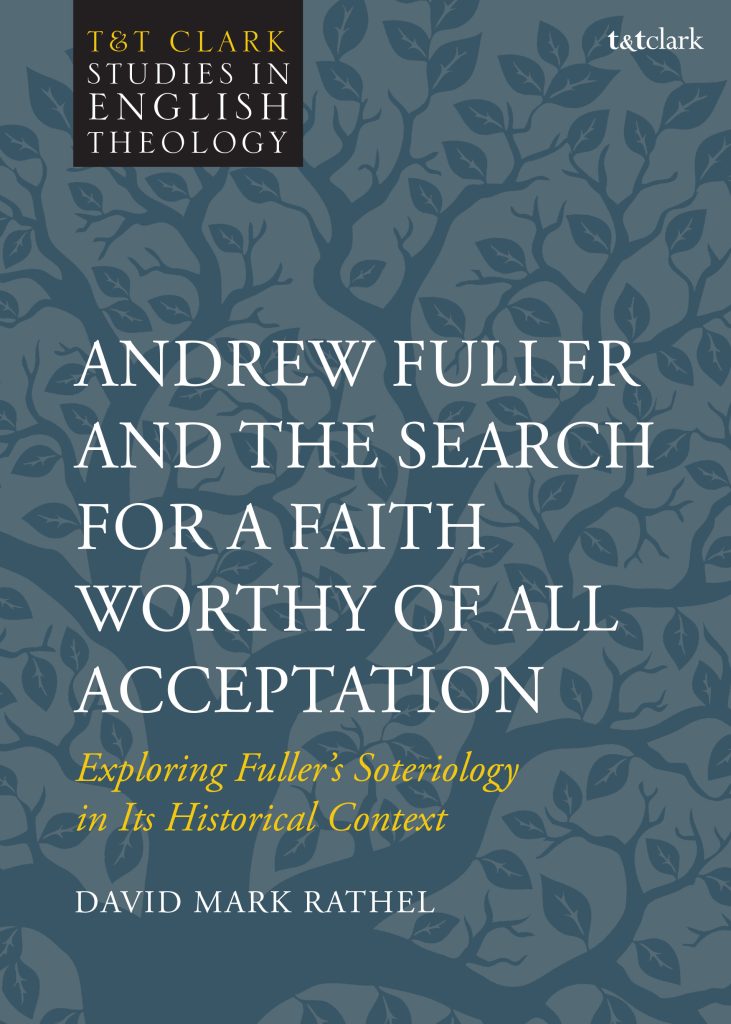How did the book come about?
Over ten years ago, I was pastoring a church and attending seminary as a PhD student. I lived in two worlds—the academy and the church. Both worlds appealed to me. I loved the personal connections afforded by pastoral ministry, and I enjoyed discussing academic theology in the classroom environment. Torn between these two worlds, I sought a model to help me integrate my passion for local church ministry with my love for theology. Someone suggested to me the writings of Andrew Fuller. Fuller was an 18th-century Baptist minister who offered constructive theological proposals relevant to his ministry environment. He wrote out of a church context and primarily for a church context. I found in Fuller an exemplary model of a pastor-theologian; in his writings, I saw a way to situate robust theological reflection in a way that was conducive to local church flourishing. I knew then that I wanted to research the life and work of Fuller —even though I am primarily a theologian and not a historian! Fuller exemplified who I aspire to be.
What is the Book’s Main Aim?
Reading Fuller and the secondary literature about Fuller convinced me that many of us today, removed as we are from Fuller’s era, do not sufficiently understand one of Fuller’s primary theological targets, a set of convictions he called false Calvinism—but that some academics today call hyper-Calvinism. Reading Fuller’s historical context well allows us to understand his theological moves better. My book contextualizes some of Fuller’s more significant theological proposals. In so doing, I hope my work contributes new information to Fuller studies. I jokingly say that much of my research for the book was akin to eating vegetables before I could get to dessert. That is, I read through the hyper-Calvinist primary sources for an extended time before getting to the “dessert” of offering what I hope is a contextually aware reading of Fuller’s most significant contributions.
If Someone is Coming to Fuller for the First Time, Where Should They Start?
I would begin by reading Fuller directly, perhaps attending at first to his unfinished systematic theology, Letters of Systematic Divinity, and some of his homilies. Fuller’s chief text against hyper-Calvinism, Gospel Worthy of All Acceptation, has become a famous work in Baptist history and merits a close read because of its historical significance.
For secondary literature, Peter Morden of Bristol Baptist College has written excellent volumes that address Fuller’s life and theology, as has Michael Haykin of the Andrew Fuller Center. My colleague at Gateway, Chris Chun, has a work that explores Fuller’s indebtedness to Edwards.

Use the link below to read an excerpt of Andrew Fuller and the Search for a Faith Worthy of All Acceptation provided by T&T Clark. It is available for purchase here.

Theologian of Holiness: Introducing John Webster
Webster’s life-long project of ‘theological theology’ could be said to be an expansion of a theological category many evangelicals would consider theologically-basic: holiness.

Jonathan Edwards and the Asbury Revival
Chris Chun and Chris Woznicki discuss the signs of true revival, signs of the work of the Holy Spirit, and why it is important to critically assess the characteristics of revival in a spirit of charity.

Jonathan Edwards and the Baptists | Douglas Sweeney, Nathan Finn and Chris Chun
Dr. Douglas Sweeney and Dr. Nathan Finn joined Dr. Chris Chun for a panel discussion on Jonathan Edwards, recorded live at the SBC Annual Meeting in Anaheim.



